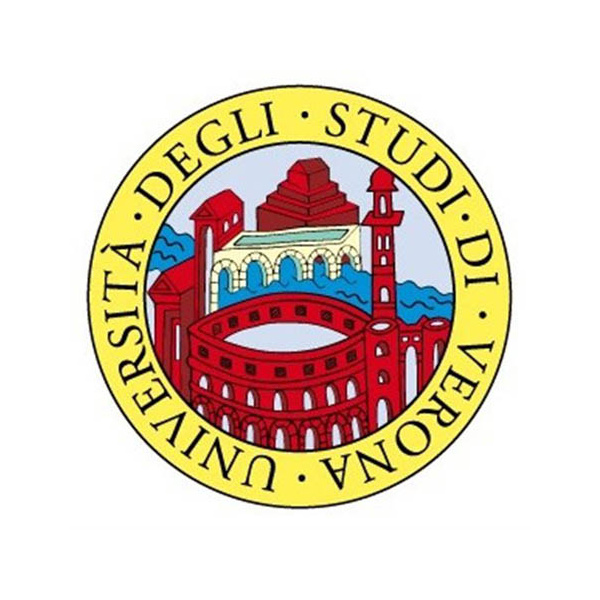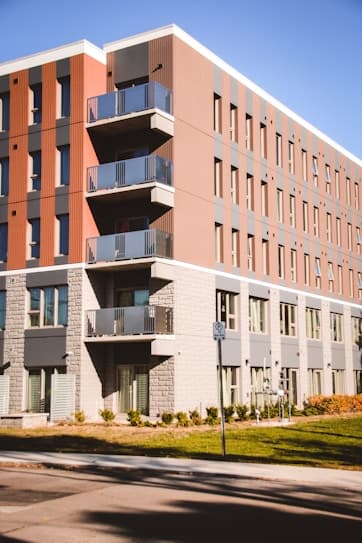
University of Verona
Verona, Italy

University of Verona
With a papal bull dated September 22, 1339, Pope Benedict XII confirmed the studium generale in Verona , consisting of the faculties of law, medicine, and art.
For some historians, the papal bull documents the recognition of an academic dimension already existing in Verona.
The city's rich cultural and artistic heritage and its fortunate geographical location, a border territory between various regions, already suggested the need to broaden the dissemination of knowledge in a society and in a cultural and economic context that needed to develop and grow.
However, the historical events of the area, only after the Second World War, thanks to a group of intellectuals led by a prominent national figure, professor and parliamentarian Guido Gonella , allowed the Veronese community to be offered the necessary development: higher education, university culture.
From 1950 to 1960 , the Ludovico Antonio Muratori Institute of Historical Sciences and the journal "Nova Historia" were founded .
It was from that group of scholars that the desire to establish a university in Verona arose.
The idea took shape in February 1959 when then-mayor Giorgio Zanotto placed " the establishment of a university Faculty of Economics and Business in Verona " on the agenda of the city council meeting .
The Provincial Administration and the Chamber of Commerce enthusiastically supported the project. Thus, the Free Faculty of Economics and Business and the Consortium for University Studies to manage it
were created .
In the summer of 1959, the project took shape. Its location was established within Palazzo Giuliari , donated by Countess Giuliari Tusini and currently the seat of the Rectorate.
Subsequently, enrollment began, and the inauguration ceremony for the new Faculty was held on November 1st of that year.
However, the lack of government recognition for the initiative dashed everyone's expectations, from Verona's public institutions to the students themselves. The city authorities sought a solution, which arrived in 1963. The University of Padua recognized the Faculty of Economics and Commerce as its own faculty, with a branch in Verona. Thus, in July 1963, the thesis of the first graduate of the newly founded Faculty in Verona was defended.
Padua soon decided to transfer the detached sections of Medicine and Surgery and the Teaching Institute , which later became the Faculty of Letters and Philosophy, to Verona.
The project that began the history of the University of Verona was finally realized in 1982 , when the government granted Verona autonomy and nationalized its University.
Thanks to the invaluable support and close collaboration of representatives of the main public and private institutions, governmental, regional and local, and also thanks to the contribution of excellent professors, the University of Verona has grown over time to include eight Faculties.
The University is currently divided into thirteen Departments , which in turn belong to four macro-disciplinary scientific areas : Legal and Economic Sciences, Humanities, Life and Health Sciences, and Science and Engineering.
The University of Verona is an institution composed of over 27,000 students and 1,400 teaching, research, and administrative staff. It pursues a process of continuous growth through the valorization of its human, structural, and financial resources.
An institution deeply rooted in the city's urban context, it looks to the future by continually strengthening the link between its educational offerings and the world of work, and aims to create increasingly adequate and welcoming facilities and services.
Features
The University of Verona is a public research university founded in 1982 in Verona, Veneto, Italy. It offers Bachelor’s, Master’s, PhD, and single-cycle degree programs across diverse fields such as humanities, economics, law, medicine, and sciences. With around 29,000 students and over 800 academic staff, it combines strong research activity with modern teaching methods. The university emphasizes internationalization, student mobility, and innovation, providing high employability — over 85% of graduates find work within a year. Its campuses are modern, welcoming, and closely connected to the vibrant city of Verona.

Accommodation
The University offers accommodation through ESU Verona in student residences.

Work While Studying
There are opportunities:\n\nStudents who are regularly enrolled (from second year onwards) can apply for “part-time student collaborations” within the University (i.e. working for university offices) up to 150 hours/year.\n\nThere is also a Job Placement Office which helps students find internships and employment opportunities.

Co-op/Internship Participation
The University of Verona has a Job Placement / Career Service that offers:\n\ncareer counselling and guidance, post-graduate internships, job matching services between students / graduates and companies.
Featured Programmes
Average Time To Receive Acceptance Letter
February - March
Location
Via S. Francesco, 22, 37129 Verona VR, Italy
Uni4Edu AI Assistant


